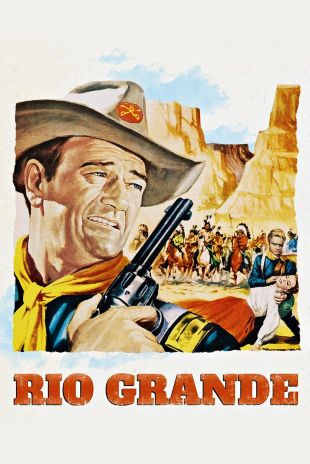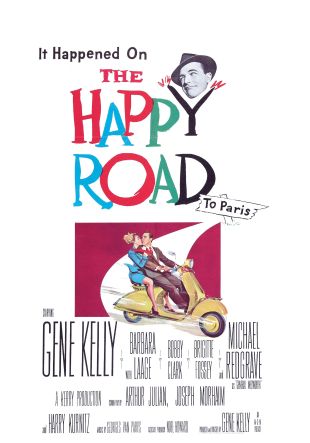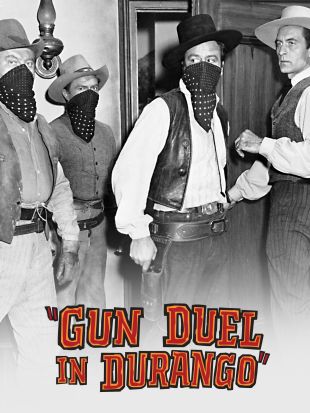Bobby Clark was a comedy star three times over (four, if you count his stint as a clown with the Ringling Bros. circus) in vaudeville and in movies in partnership with Paul McCullough, and finally on Broadway. Clark was born in Springfield, OH, in 1888, and as a boy he befriended the slightly older McCullough. The two learned to play music together -- especially the bugle -- and later took a tumbling class at the YMCA and got their first engagement as an acrobatic act at a local Elks Club-sponsored circus. They began hiring themselves out as entertainers and worked in minstrel shows as tumblers, buglers, and general handymen. Clark also had aspirations to act that he never gave up -- and which would serve him well four decades later -- and made his debut in a legitimate play called Mrs. Jarley's Waxworks in 1902. He was soon partnered again with McCullough, working a minstrel show touring the southern and midwestern states. In 1906, they were hired by the Ringling Brothers as clowns, and in 1912 they made the leap to vaudeville. For the next ten years, their reputations as comics grew, and in 1922 they made their European debut in London in Chuckles of 1922. They worked in the Music Box Revue on Broadway that same year and, after two more Music Box Revues, the duo, billed as "Clark & McCullough," got star billing in The Ramblers on Broadway in 1926. The year 1928 brought them to the big screen in a series of excruciating funny short films for Fox, which were so successful that the studio signed them to make a series of full-sound featurettes, some running to three and four reels each. They followed these up in the early '30s with a series of shorts for RKO, which proved to be their most enduring legacy. One of the reasons for their success was that Clark & McCullough defied the expectations of audiences -- though they were billed as "Clark & McCullough," which would have led audiences to expect Clark to be the straightman and McCullough the comic, originally both of these guys were funny in complimentary ways. Clark was a ridiculous-looking dialogue comedian with painted-on glasses, spouting rapid-fire verbal shots, and was also given to spontaneous improvisation on the soundstage -- for that reason, the producers of their films liked to keep at least two cameras running at all times, to follow him in his moments of inspiration; the heavier, more physically imposing McCullough usually sported a racoon coat and a toothbrush mustache, and gradually moved into Clark's shadow as the '30s wore on. By the mid '30s, Clark was identified as the more creatively engaged half of the team, working with the director and the crew to lay out the stunts and comic bits, and doing the rehearsals while McCullough only showed up for the actual shooting.
Overall, Clark & McCullough were like a two-man answer to the early Marx Brothers, although they never graduated to feature-length movies or got writers of the caliber of George S. Kaufman, Morrie Ryskind, et al. Eventually, Clark became the dominant member of the team while McCullough became the straight man feeding him lines and setting up his humor, but when asked, the older man professed not to mind the change in the dynamic between them. The duo never entirely abandoned the stage, had another success in 1935 with Thumb's Up, both on Broadway and on tour. The following year, they spent a season in 1936 with Earl Carroll's Vanities, doing an abbreviated version of the same show -- it was to be the last time they would work together. In March of 1936, following the end of the production, McCullough entered a sanitarium suffering from what was thought to be exhaustion. According to one source, later that month, Clark was driving McCullough home after leaving the sanitarium when his partner remarked that he needed a shave -- stopping at a barber shop, he went in and sat down in a barber chair, talking to the barber, and suddenly slashed his own throat with the razor; McCullough died two days later. Clark was so grief stricken over the sudden loss of his partner that he never went back to movie work or went forward with the duo comedy act again. In effect, he remade himself and was reborn -- keeping some of the same trademark attributes, including the painted-on glasses -- as a comic actor and star on the legitimate stage. Clark appeared in a string of stage successes over the next decade and a half, including Streets of Paris, Love for Sale, Star and Garter, Mexican Hayride, Sweethearts, and As the Girls Go. He also directed some of the scenes in the 1950 production of Peep Show, and made his last stage appearance in a touring company of Damn Yankees in 1958. He passed away of a heart attack in 1960 at the age of 71, after three successful runs at stardom in a career of nearly 60 years. Because his work after 1936 was confined almost entirely to the stage (apart from an appearance in The Goldwyn Follies and some television work in the early '50s), the visual record of his work is confined to the earlier phase of his career, the RKO shorts that he made with McCullough. The latter were revived in the late '60s and syndicated to television along with similar short subjects by Edgar Kennedy and Leon Errol under the title "Reel Camp."


